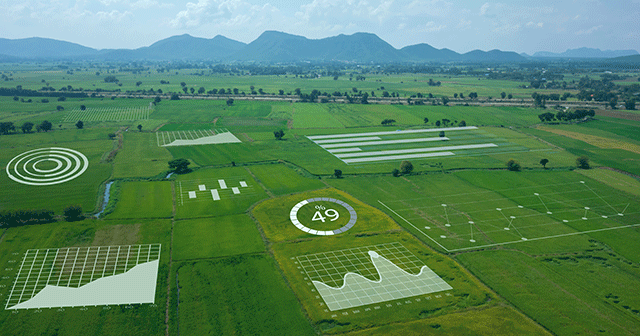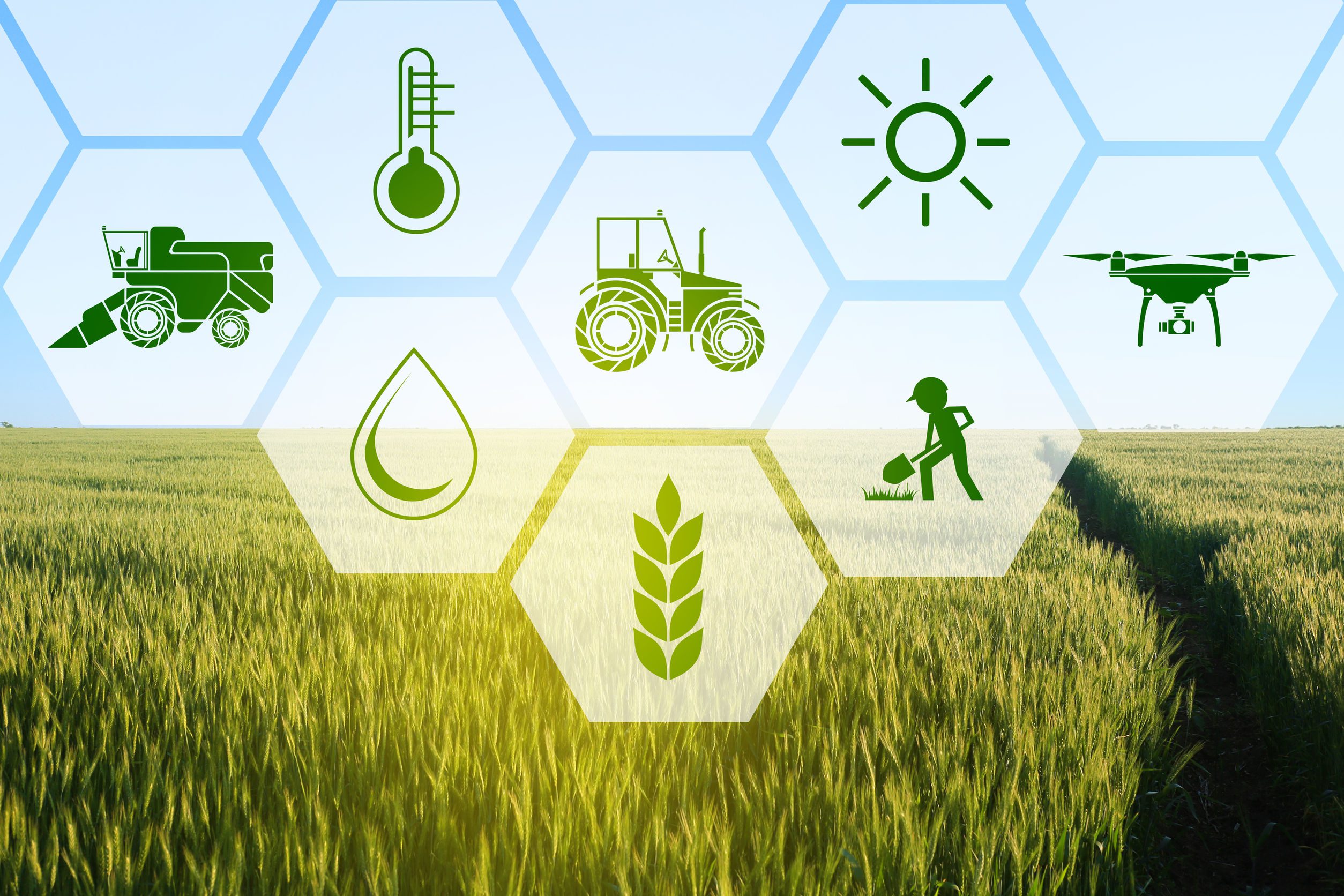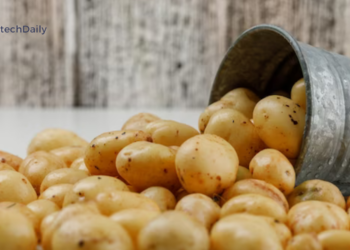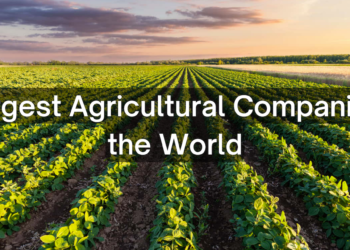This article explores the latest breakthroughs in agricultural research and how they could revolutionize farming in the near future. It delves into various aspects of agro-tech, including crop breeding, plant genetics, soil management, irrigation techniques, and more.
The article highlights some of the most promising developments in the field, from precision agriculture to gene editing, and discusses how these innovations could help address some of the biggest challenges facing modern agriculture.
Agriculture has come a long way since the days of plows and horse-drawn carriages. Today, farmers have access to a range of cutting-edge technologies that have transformed the industry in countless ways.
From drones that monitor crop growth to sensors that optimize irrigation, modern agro-tech is making farming more efficient, productive, and sustainable than ever before. But the pace of innovation in agriculture shows no signs of slowing down.
In recent years, scientists and researchers have made significant breakthroughs in areas such as crop breeding, plant genetics, and soil management, promising to transform the way we produce food in the years to come.
Precision Agriculture
One of the most significant developments in agro-tech in recent years has been the rise of precision agriculture. This approach involves using sensors, GPS mapping, and other technologies to optimize crop growth and improve yields.

By collecting data on factors such as soil moisture, nutrient levels, and pest infestations, farmers can make more informed decisions about how to plant, fertilize, and harvest their crops. Precision agriculture can also help reduce waste and minimize environmental damage by reducing the amount of fertilizer, water, and other resources needed to grow crops.
Gene Editing
Another promising area of agricultural research is gene editing. This technology allows scientists to make precise changes to the DNA of plants, animals, and microbes, potentially allowing them to create new crop varieties that are more resilient, productive, and nutritious.
For example, researchers are exploring ways to use gene editing to create crops that are more resistant to pests and diseases, require less water and fertilizer, and can grow in a wider range of conditions.
Vertical Farming
Vertical farming is a relatively new approach to agriculture that involves growing crops in stacked layers, often indoors or in urban settings. This technique can help overcome some of the limitations of traditional farming
Such as limited space, water scarcity, and the need for large amounts of fertilizer and pesticides. Vertical farming also allows for year-round crop production and can help reduce transportation costs by bringing food production closer to urban areas.
Soil Management
Soil health is a critical factor in crop growth, and researchers are exploring ways to optimize soil management to improve yields and reduce environmental damage.
One promising approach is regenerative agriculture, which involves building soil health by using cover crops, reducing tillage, and integrating livestock grazing into cropping systems.
This approach can help improve soil structure, increase nutrient availability, and reduce erosion and runoff, all while promoting biodiversity and reducing greenhouse gas emissions.
Plant Genetics
Plant genetics is another area of agro-tech that holds tremendous promise for the future of farming. By studying the DNA of different plant species, researchers can identify traits that can help crops thrive in different environments, resist pests and diseases, and produce higher yields.

They can also use genetic engineering to introduce desirable traits into crops, such as drought tolerance, nutrient efficiency, and disease resistance.
Drones
Drones are increasingly being used in agriculture to monitor crop growth, identify areas of stress or disease, and apply pesticides or fertilizers more precisely. With their ability to cover large areas quickly and capture high-resolution images, drones are becoming an essential tool for modern farmers.
They can also help reduce labor costs and increase efficiency, allowing farmers to make more informed decisions about how to manage their crops.
Water Management
Water is a precious resource, and managing it effectively is essential for sustainable agriculture. Advances in technology are helping farmers better manage water usage, from precision irrigation systems that use sensors to determine when and how much water to apply
Soil moisture sensors can help farmers monitor water levels in their fields. In addition, researchers are exploring ways to develop crops that require less water to grow, such as drought-resistant varieties.
Robotics
Robotics is another area of agro-tech that is transforming the way we grow crops. From automated tractors that can plant and harvest crops to robots that can weed fields and apply pesticides more precisely, robots are helping farmers become more efficient and productive. They can also help reduce labor costs and make farming safer by taking on dangerous or repetitive tasks.
Bioengineering
Bioengineering involves using living organisms to create new products, such as biofuels, bioplastics, and other materials. In agriculture, bioengineering is being used to develop new crop varieties that are more resistant to pests and diseases, can grow in a wider range of conditions, and produce higher yields.
For example, researchers are exploring ways to use microbes to increase the availability of nutrients in the soil and to produce biofuels from plant material.
Big Data
Big data is playing an increasingly important role in agriculture, allowing farmers to collect and analyze large amounts of information on everything from weather patterns to soil health to crop yields.
By using data analytics and machine learning, farmers can make more informed decisions about how to manage their crops, predict and prevent disease outbreaks, and optimize resource usage.
Big data can also help farmers comply with regulations and traceability requirements, ensuring that their products meet high quality and safety standards.
Blockchain
Blockchain technology is also beginning to make its way into agriculture, offering new opportunities for transparency, traceability, and accountability.

By using blockchain to track the movement of food products from farm to table, farmers can provide consumers with more information about where their food comes from, how it was grown, and what processes it went through before reaching their plates.
This can help build trust and confidence in the food system, while also providing farmers with new marketing opportunities.
Conclusion
As these examples demonstrate, there are countless ways in which agro-tech is transforming the world of farming. From precision agriculture to gene editing, from robotics to big data, these breakthroughs are helping farmers become more efficient, productive, and sustainable.
They are also helping to address some of the biggest challenges facing agriculture, such as climate change, water scarcity, and food security. While there are still many challenges and obstacles to overcome, the future of agriculture looks bright, thanks to the power of technology and innovation.









